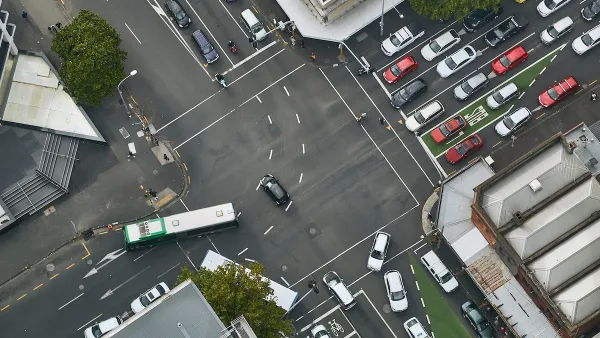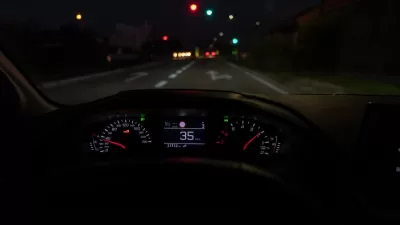Last year’s state ban ended a 13-year red-light enforcement program in Dallas. City officials say that intersections throughout the city are less safe without the cameras.

Dallas shut off its red-light cameras last year after Governor Greg Abbott signed a law banning them in the state.
"City transportation officials said that the red-light program made roads safer. They decreased T-bone collisions, which can lead to serious injuries or death because those tend to occur at faster speeds," write Hayat Norimine and Ariana Giorgi.
Crashes overall decreased at 19 of 29 intersections in the city where the cameras were installed, according to an analysis by the city’s Transportation Department.
In addition, the city will no longer have access to the funds collected from fines — almost $6 million in 2018 alone. Half of this funding went to traffic signal upgrades, and the ban will result in a loss of $2 million to $3.5 million annually, a substantial decrease that will hamper efforts to address infrastructure needs.
"The city has fallen behind on traffic signal maintenance. [Assistant City Manager Majed] Al-Ghafry said 60% of Dallas’ traffic signals are more than 20 years old, and the city will need up to $25 million over about two decades to systematically replace some of the oldest," report Norimine and Giorgi.
FULL STORY: Red-light traffic cameras reduced crashes, and now they’re gone. What’s next for Dallas?

Maui's Vacation Rental Debate Turns Ugly
Verbal attacks, misinformation campaigns and fistfights plague a high-stakes debate to convert thousands of vacation rentals into long-term housing.

Planetizen Federal Action Tracker
A weekly monitor of how Trump’s orders and actions are impacting planners and planning in America.

Chicago’s Ghost Rails
Just beneath the surface of the modern city lie the remnants of its expansive early 20th-century streetcar system.

Bend, Oregon Zoning Reforms Prioritize Small-Scale Housing
The city altered its zoning code to allow multi-family housing and eliminated parking mandates citywide.

Amtrak Cutting Jobs, Funding to High-Speed Rail
The agency plans to cut 10 percent of its workforce and has confirmed it will not fund new high-speed rail projects.

LA Denies Basic Services to Unhoused Residents
The city has repeatedly failed to respond to requests for trash pickup at encampment sites, and eliminated a program that provided mobile showers and toilets.
Urban Design for Planners 1: Software Tools
This six-course series explores essential urban design concepts using open source software and equips planners with the tools they need to participate fully in the urban design process.
Planning for Universal Design
Learn the tools for implementing Universal Design in planning regulations.
planning NEXT
Appalachian Highlands Housing Partners
Mpact (founded as Rail~Volution)
City of Camden Redevelopment Agency
City of Astoria
City of Portland
City of Laramie





























